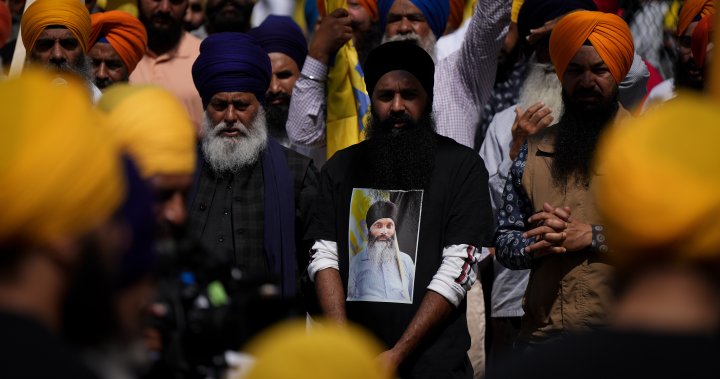The suspected hitmen accused of killing B.C. Sikh leader Hardeep Singh Nijjar have been arrested in Alberta and Ontario, possibly working at the direction of Indian intelligence. RCMP took the Indian nationals into custody almost a year after Nijjar was gunned down at Guru Nanak Sikh Temple in Surrey, B.C. Allegations suggest a possible Indian government strategy to assassinate leaders of the Khalistan movement that supports independence for India’s Sikh-majority Punjab state. Prime Minister Trudeau previously pointed fingers at the government of Prime Minister Modi, leading to a diplomatic feud between Canada and India.
Canadian officials have been investigating whether Nijjar’s murder was part of an Indian intelligence operation based in New Delhi, using Indian citizens who entered the country as international students. Nijjar, a plumber and temple president, faced Indian allegations of being a Khalistan Tiger Force leader but was not charged in Canada. The killing is seen as rising transnational repression, in which foreign states use intimidation and killings to further their agendas abroad. There are concerns about impunity for targeting diasporas and the lack of accountability for such actions.
RAW, India’s foreign intelligence service headed by Samant Goel until July 2023, has been implicated in targeting Khalistan advocates in North America and Europe. Under Modi, RAW has increased pressure on pro-Khalistan groups outside India, leading to alleged plots to kill prominent figures like Nijjar. The motive behind transnational killings remains unclear, but could be linked to domestic political calculations, with Modi portraying himself as a strong leader. The lack of consequences and India’s growing regional power could explain the strategy.
The U.S., unlike Canada, has downplayed India’s involvement in the Khalistan assassination plots for diplomatic reasons. India has claimed the plots were carried out by rogue officials in RAW without government authority. Legal experts believe this does not absolve India of responsibility, as the officials were still acting as part of the government. India’s decision to conduct targeted killings may stem from a changed view of the Khalistan threat under Modi, as India feels its security concerns are not taken seriously globally.
Canada’s options for responding to the killing are limited, especially if Indian agents were involved. If foreign diplomats were implicated, they are protected by diplomatic immunity and cannot be charged. Canada may have legal remedies against the Indian government for violating international law and Canadian sovereignty, but these processes can be costly and time-consuming. Ultimately, Canada may need to negotiate with India to address the situation and seek justice for the targeted killing on Canadian soil.
Overall, the alleged involvement of Indian intelligence in the assassination of Nijjar and other Khalistan advocates has raised concerns about transnational repression and accountability for such actions. The geopolitical implications of Canada’s response to the killing, the diplomatic fallout between Canada and India, and the broader impact on relations between the two countries and their allies are all factors to consider in seeking justice for the victims and holding those responsible accountable.


